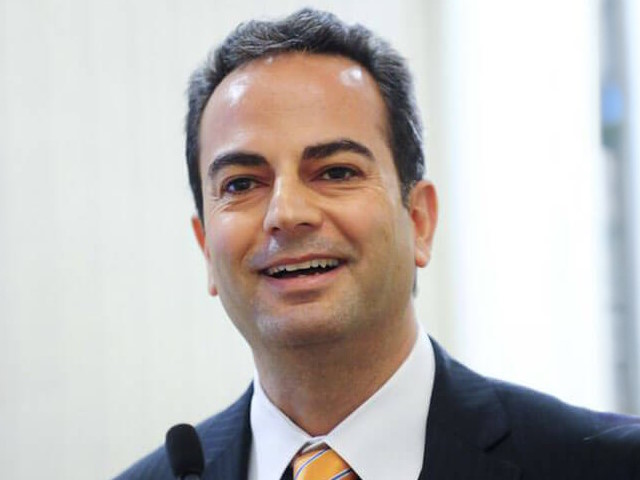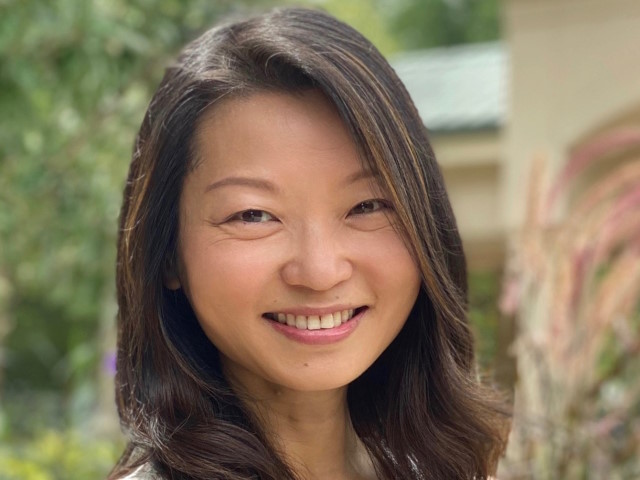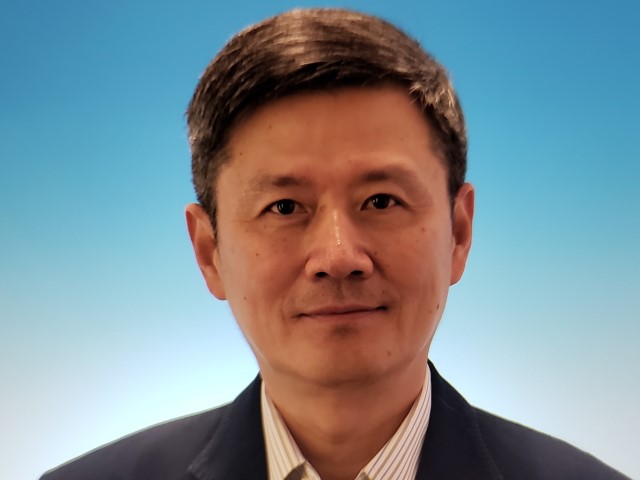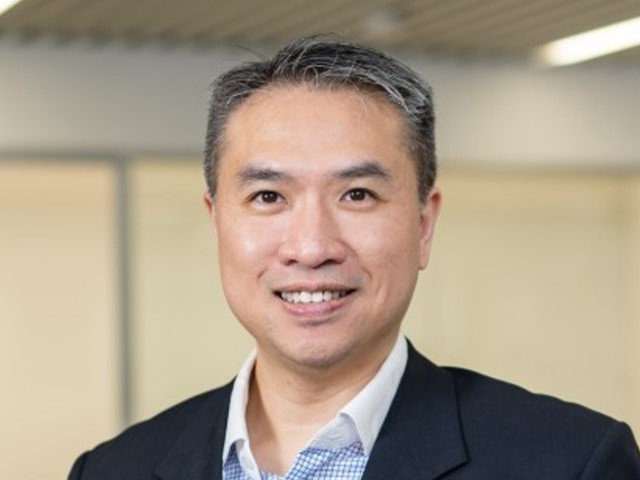Talk Details
The following shows the talk details.

Keynote 1: Machine Learning for Big Spatial Data and Applications
Speaker: Mohamed Mokbel (University of Minnesota)
Time: 09:40 am - 10:40 am
Abstract: This talk will focus on our recent efforts in adopting machine learning (ML) techniques for big spatial data and applications. This includes going for two orthogonal, but related, directions. In the first direction, we show that traditional ML-based applications like knowledge-base construction and data cleaning are missing a great opportunity by not incorporating the distinguishing characteristics of spatial data in their core operations. We then show that injecting spatial-awareness into the core ML operations behind these applications significantly boost their accuracy. In the second direction, we show that traditional spatial applications can benefit from the recent advances in ML techniques to significantly boost their scalability and accuracy. We will focus on two main widely used spatial applications, namely, map services (e.g., shortest path queries), and trajectory data management.
Biography: Mohamed Mokbel is a Distinguished McKnight University Professor at the University of Minnesota. Prior roles while on leave/sabbatical from UMN include Chief Scientist of Qatar Computing Research Institute, Founding Technical Director of GIS Technology Innovation Center in Saudi Arabia, and multiple times Visiting Researcher at Microsoft Research, USA. His research interests include database systems, spatial data, and GIS. His research work has been recognized by the NSF CAREER Award, ACM SIGSPATIAL 10-Year Impact Award, VLDB 10-years Best Paper Award, and four conference Best Paper Awards. Mohamed is the past elected Chair of ACM SIGSPATIAL, current Editor-in-Chief for Springer Distributed and Parallel Databases Journal, and on the editorial board of ACM Books, ACM TODS, VLDB Journal, ACM TSAS, and GeoInformatica journals. He has served as PC Co-Chair for ACM SIGMOD, ACM SIGSPATIAL, and IEEE MDM. Mohamed is an IEEE Fellow and ACM Distinguished Scientist.

Keynote 2: Location & Privacy: Past, Present and Future -- A GeoAI Perspective
Speaker: Cyrus Shahabi (University of Southern California)
Time: 11:10 am - 12:10 pm
Abstract: In this talk, I will review various types of mobile applications, from Location-Based-Services (LBS) and Ride-Sharing to pandemic risk-prediction applications, which collect, analyze and use location data to provide various services to users. I explain some of the main underlying technologies (e.g., kNN queries and contact-network analysis) that enable these applications from a spatial data management and analysis (aka GeoAI) perspective. I will also discuss some of the privacy concerns with these applications due to their location leaks and review several approaches to protect location privacy without sacrificing the utility of these applications. I will wrap up by presenting some new envisioned applications and their corresponding open problems.
Biography: Cyrus Shahabi received his B.S. in Computer Engineering from Sharif University of Technology and his M.S. and Ph.D. Degrees in Computer Science from the University of Southern California (USC). He is a Professor of Computer Science, Electrical & Computer Engineering, and Spatial Sciences; Helen N. and Emmett H. Jones Professor of Engineering; and the director of the Integrated Media Systems Center (IMSC) at USC. He was also the chair of the Computer Science Department at USC from 2017 to 2022. He was co-founder of two USC spin-offs, Geosemble Technologies and Tallygo. He authored two books and more than three hundred research papers in databases, GIS, and multimedia with 14 US Patents. He chaired the founding nomination committee of ACM SIGSPATIAL for its first term (2007-2011 term) and served as the chair of ACM SIGSPATIAL for the 2017-2020 term. He was an Associate Editor of IEEE Transactions on Parallel and Distributed Systems, IEEE Transactions on Knowledge and Data Engineering, and VLDB Journal. He is currently on the ACM Transactions on Spatial Algorithms and Systems, ACM Computers in Entertainment and PVLDB Vol. 16 editorial board. He is the PC Chair of the fiftieth anniversary of VLDB, VLDB 2024 (PVLDB Vo. 17). Dr. Shahabi is a recipient of the ACM Distinguished Scientist award, the U.S. Presidential Early Career Awards for Scientists and Engineers (PECASE), and the NSF CAREER award. He is a fellow of the National Academy of Inventors (NAI) and IEEE.

Keynote 3: Trustworthy and Collaborative AI through Federated Learning
Speaker: Li Xiong (Emory University)
Time: 02:00 pm - 03:00 pm
Abstract: Federated learning (FL) is a driving technology for collaborative AI which allows decentralized clients (e.g., edge devices or healthcare organizations) to collaboratively train machine learning models without directly sharing their data. I will present several of our recent works towards trustworthy FL including: 1) addressing data heterogeneity across clients, 2) ensuring formal privacy of the final model while optimizing model utility, and 3) ensuring robustness against potential failures and attacks of the clients. I will discuss several applications for harnessing decentralized health and mobility data for public health and healthcare (including our recent effort in supporting the 2023 US-UK privacy enhancing technology challenge for pandemic) and conclude with open research questions.
Biography: Li Xiong is a Samuel Dobbs Professor of Computer Science and Biomedical Informatics at Emory University. She held a Winship Distinguished Research Professorship from 2015-2018. She has a Ph.D. from Georgia Institute of Technology, an MS from Johns Hopkins University, and a BS from the University of Science and Technology of China. She and her research lab, Assured Information Management and Sharing (AIMS), have a recent focus on developing trustworthy and privacy-enhancing data-driven AI solutions for public health, healthcare, and spatial intelligence. She has published over 180 papers and received six best paper or runner up awards. She has served and serves as associate editor for IEEE TKDE, VLDBJ, IEEE TDSC, general or program chair for ACM SIGSPATIAL 2024, ACM CIKM 2022, IEEE BigData 2020, and ACM SIGSPATIAL 2018, 2020. Her research has been supported by both government agencies including NSF, NIH, IARPA, AFOSR, and PCORI, and industry sponsors including Google, Mitsubishi, Cisco, Kaiser Permanente, IBM, AT&T, and Woodrow Wilson Foundation. She is an IEEE fellow. More details are at http://www. cs.emory.edu/~lxiong.

Local Talk 1: Building Smart Cities Using Big Data from The Past, Present and Future
Speaker: Xiaofang Zhou (The Hong Kong University of Science and Technology)
Time: 12:10 pm - 12:40 pm
Abstract: Efficient and reliable routing solutions are pivotal to building smart cities by enabling navigation applications, delivery services, emergency services and public transportation. It is essential to consider global optimization to achieve the best outcome for all road users. This problem is computationally and methodologically challenging because of the intertwined nature of path planning and cost-resetting that must consider future traffic induced by the planning process. Global routing optimization is a solution that requires the design of a dynamic optimization objective function that takes past, current and future traffic into account. It requires the development of data-driven methods that can discover traffic patterns based on historical data and make reliable AI-based predictions using the current data combined with machine learning models. In this talk, we will share our recent thinking on this new topic for future transportation systems that must deal with dynamic data, AI-based models, and system-wide optimization at a very large scale.
Biography: Professor Xiaofang Zhou is Otto Poon Professor of Engineering and Chair Professor of Computer Science and Engineering at The Hong Kong University of Science and Technology. Currently, he is Head of Department of Computer Science and Engineering and Co-Director of Big Data Institute. He is the founding director of HKUST-HKPC Joint Lab on Industrial AI and Robotics Research, HKUST-China Unicom Joint Lab on Smart Society, and JC STEM Lab on Data Science Foundations. He has been working in data science, spatiotemporal databases, data mining, data quality management, high-performance query processing, big data analytics, and machine learning, co-authored over 500 research papers. He received Best Paper Awards from WISE 2012&2013, ICDE 2015&2019, DASFAA 2016 and ADC 2019. He was Program Committee Chair of IEEE International Conference on Data Engineering (ICDE 2013), ACM International Conference on Information and Knowledge Management (CIKM 2016), and International Conference on Very Large Databases (PVLDB 2020). Professor Zhou is a Global STEM Scholar of Hong Kong and an IEEE Fellow.

Local Talk 2: Towards Large-Scale Spatiotemporal Kernel Density Visualization
Speaker: Jianliang Xu (Hong Kong Baptist University)
Time: 03:00 pm - 03:30 pm
Abstract: Kernel Density Visualization (KDV) is a widely used technique in disciplines such as geography, crime science, transportation science, and ecology for analyzing geospatial data. However, the scalability of KDV methods has become a concern due to limitations in existing software tools when dealing with massive geospatial datasets and generating high-resolution KDVs. In this talk, we will discuss the challenges associated with scalability in KDV and present our recent efforts in developing efficient algorithms to address these challenges.
Biography: Jianliang Xu is the Head and Chair Professor of the Department of Computer Science at Hong Kong Baptist University. His current research interests include big data management, data security & privacy, and blockchain technology. With an h-index of 56, he has published more than 250 technical papers in these areas, most of which have appeared in leading journals and conferences, including SIGMOD, PVLDB, ICDE, TKDE, and VLDBJ. He is listed among the world's top 2% scientists by Stanford University. He has served as a Program Committee Co-Chair for a number of international conferences and as an Associate Editor for several top-tier international journals including TKDE and PVLDB. More details can be found at: https://www.comp.hkbu.edu.hk/~xujl/.

Local Talk 3: Mobility Data Science for Social Goods
Speaker: Reynold Cheng (The University of Hong Kong)
Time: 04:00 pm - 04:30 pm
Abstract: In recent years, there is a huge increase in the use of mobility data science and AI for addressing a wide range of important social domains. In this talk, I will discuss how the HKU STAR (Social Technology And Research) Lab uses mobility data science technologies for analysing the traveling patterns of passengers during the COVID pandemic. We examine the role that transportation plays in the spread of COVID-19. For example, how does the pandemic affect the anxiety and the choices of the passengers? How are travel patterns affected by the shutdown of a railway station? Answering these questions can lead to a better understanding of the interaction between transportation and coronavirus spread, so as to make us more aware of the infection risks in different transportation tools, and help policy makers to make better prevention and control strategies. I will discuss the recent progress of addressing the above problems, with a data-driven approach on the traveling records of the Hong Kong Mass Transit Railway (MTR) passengers. I will also talk about my recent effort in using mobility data technologies for enhancing service quality and streamlining administrative work of social workers from 14 NGOs, supporting more than 7,000 users. The STAR lab's effort has been recognised by an HKICT Award, two Asia Smart App Awards, and an HKU Faculty Knowledge Exchange Award.
Biography:Professor Reynold Cheng is a Professor of the Department of Computer Science, an Associate Dean of Engineering, and an Associate Director of the Musketeers Foundation Institute of Data Science in the University of Hong Kong (HKU). His research interests are in data science, big graph analytics and uncertain data management. He was the Assistant Professor in the Department of Computing of the Hong Kong Polytechnic University (HKPU) from 2005 to 2008. He received his BEng (Computer Engineering) in 1998, and MPhil (Computer Science and Information Systems) in 2000 from HKU. He then obtained his MSc and PhD degrees from Department of Computer Science of Purdue University in 2003 and 2005.
Professor Cheng is listed as the World's Top 2% Scientists by Stanford University in 2022, and is named the 2023 AI 2000 Most Influential Scholar Honorable Mention in Database. He received the SIGMOD Research Highlights Reward 2020, HKICT Awards 2021, and HKU Knowledge Exchange Award (Engineering) 2021. He was granted an Outstanding Young Researcher Award 2011-12 by HKU. He received the Universitas 21 Fellowship in 2011, and two Performance Awards from HKPU Computing in 2006 and 2007. He is an academic advisor to the College of Professional and Continuing Education of HKPU. He is a member of IEEE, ACM, ACM SIGMOD, and UPE. He was a PC co-chair of IEEE ICDE 2021, and has been serving on the program committees and review panels for leading database conferences and journals like SIGMOD, VLDB, ICDE, KDD, IJCAI, AAAI, and TODS. He is on the editorial board of KAIS, IS and DAPD, and was a former editorial board member of TKDE.

Panel Discussion: GeoAI: Past, Present and Future
Panel Members: Mohamed Mokbel (University of Minnesota), Cyrus Shahabi (University of Southern California), Li Xiong (Emory University)
Moderator: Raymond Chi-Wing Wong (The Hong Kong University of Science and Technology)
Time: 04:30 pm - 06:00 pm
Abstract: This panel discussion involves our 3 oversea keynote speakers, namely Mohamed Mokbel (University of Minnesota), Cyrus Shahabi (University of Southern California) and Li Xiong (Emory University), moderated by Raymond Chi-Wing Wong (The Hong Kong University of Science and Technology). Since they are experts in GeoAI, they will discuss the "past", the "present" and the "future" of GeoAI in this panel discussion. Interested participants could also ask questions in this panel discussion to obtain insights from our panelists.
